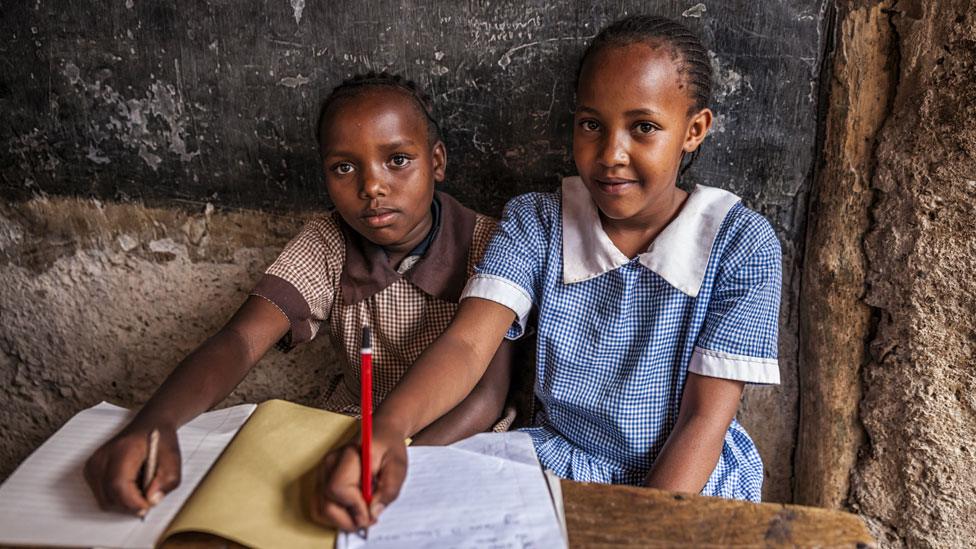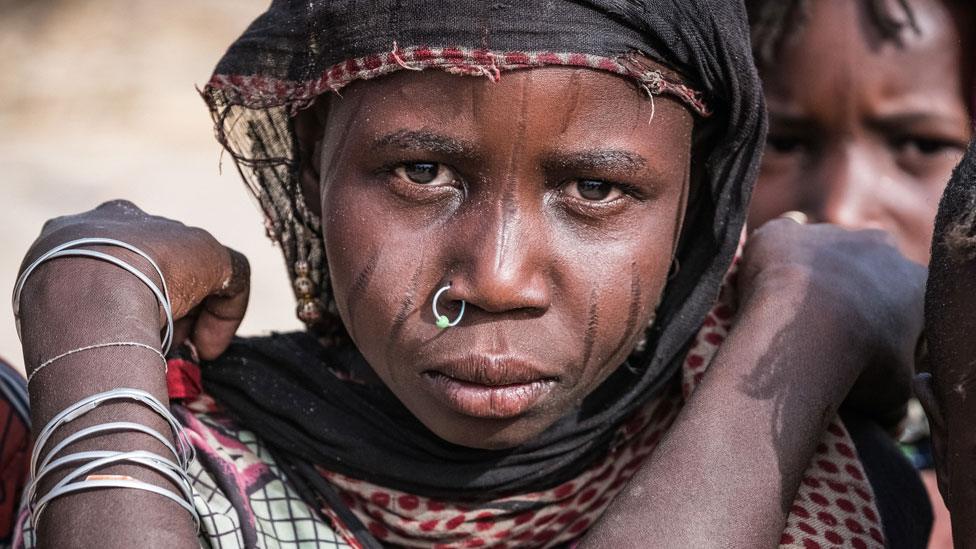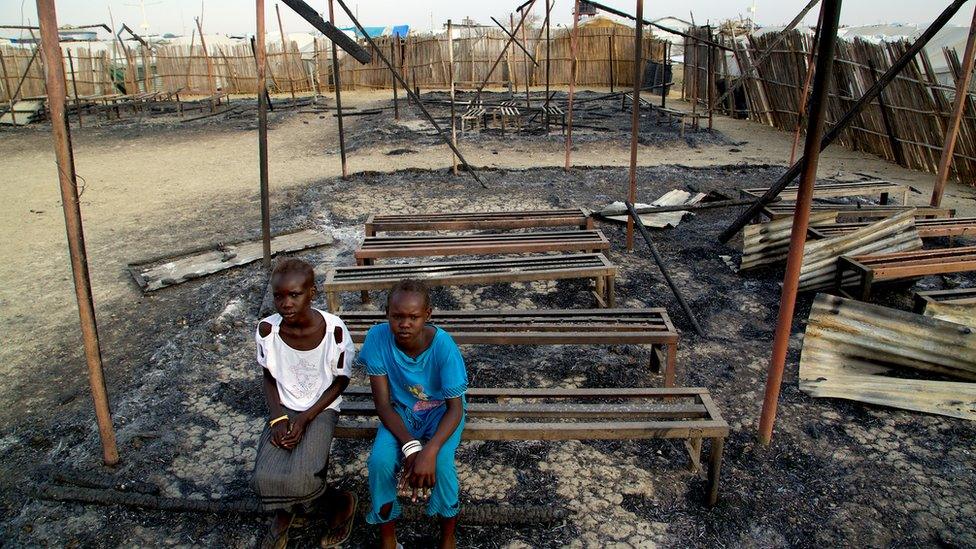Bigger share of aid budget for education, say MPs
- Published

MPs are calling for more investment in education in the UK's overseas aid
Education should receive a bigger share of the UK's overseas aid budget, a cross-party report from MPs says.
The International Development Select Committee said education is vital to improving lives in the world's poorest countries.
The proportion of the UK's aid budget spent on education was about 7% in 2015, according to MPs.
Stephen Twigg, who chairs the committee, said more must be done for the "most marginalised children".
The report, examining the Department for International Development's work on education, highlights the lack of access to education in developing countries and conflict zones.
'Eradication of poverty'
"Education is a fundamental human right which underpins the improving of lives and the eradication of poverty," the report says.
But, it says, there are 263 million young people without access to school and a further 330 million in schools of such poor quality they are not learning even the basics.

Girls are more likely to miss out on school in countries facing poverty and conflict
The number of families displaced from their homes - such as refugees from war - has almost doubled since the late 1990s, leaving millions of children without schools.
The report shows that in 2015, about £650m of the UK's aid budget was spent on education in direct, bilateral aid - and a further £227m through other departments or international organisations.
This was about 7% of the total overseas aid spending - down from 10% in 2011 and 2013 and 9% in 2014.

More from Global education
Ideas for the Global education series? Get in touch.

The MPs say more support for education is essential for long-term efforts to lift countries from poverty.
The report says UK aid should focus on the groups most likely to be out of education - "the very poorest, girls, disabled children and those affected by conflict and emergencies".
MPs are also calling for more funding to come from developing countries to support their school systems - and for that education funding to more equitably shared within countries.
Fairer access
Kevin Watkins, chief executive of Save the Children, told the committee that too often spending on education in low-income countries was "heavily-skewed towards more advantaged children".

War in South Sudan: Conflict has destroyed access to schools for millions of children
The committee is calling for more support for the Global Partnership for Education, an international coalition that works with 65 developing countries to improve education.
MPs also examined the "controversial" use of aid funding to support private school chains in poor countries, such as in sub-Saharan Africa.
The report says there is still a "lack of research" and a need for more evidence into the effectiveness of such fee-charging schools.
Mr Twigg said improvements in education would "require a substantial increase in finance".
He urged the Department for International Development to "champion the needs of the most marginalised children and young people across the world".
A Department for International Development spokeswoman said: "As this report recognises, the UK is giving millions of children in the poorest and most fragile countries the vital education they need to get jobs and have a brighter future.
"DFID is increasing its focus on getting the world's most vulnerable children, including refugees and those with disabilities, into school."